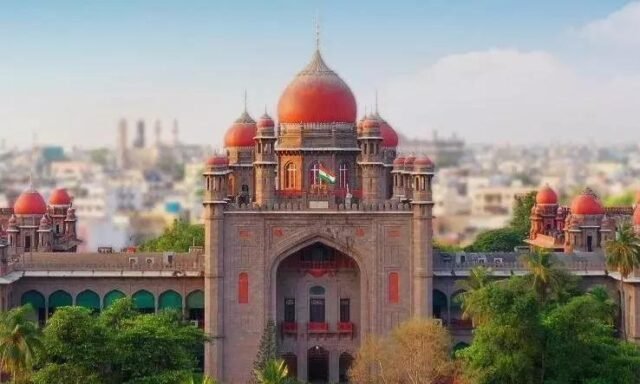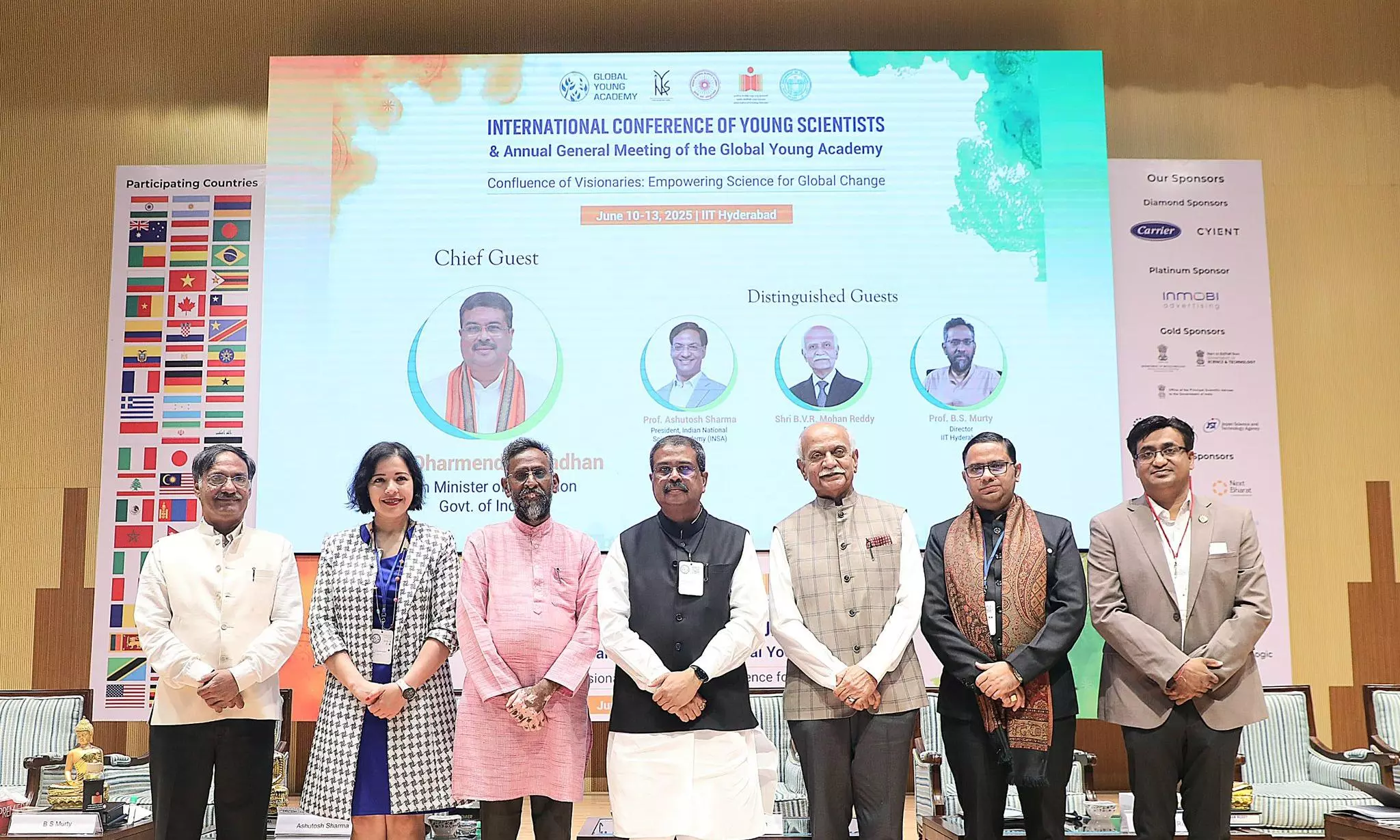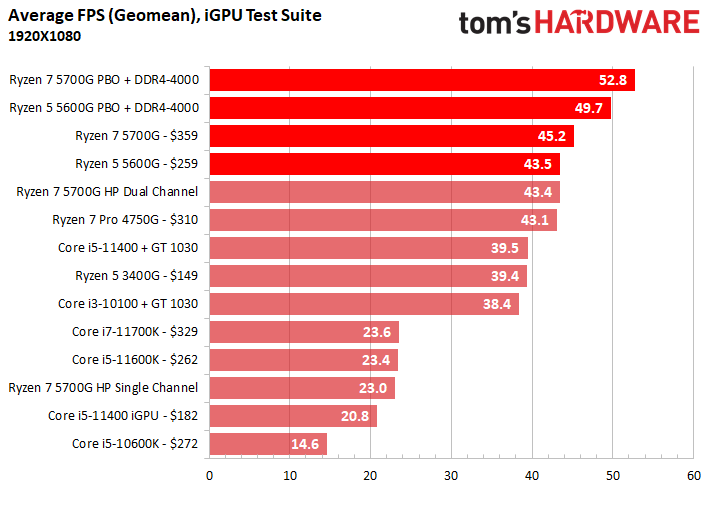Hyderabad: Justice K. Lakshman of Telangana High Court dispensed with the appearance of Karimnagar MP and minister of state for home affairs, Bandi Sanjay Kumar, in a criminal case before the Judicial Magistrate of First Class PCR (Special Mobile) at Karimnagar. Criminal proceedings were initiated against the minister on charges of wanton provocation with intent to cause a riot during the previous Assembly elections. According to the complainant, V. Ramesh, who is the tahsildar and Assistant Returning Officer, the petitioner conducted a press meet after voting in ward 26, Karimnagar Assembly constituency. It was alleged that he made controversial remarks against the BRS and Congress apart from making remarks on the Nagarjunasagar project. It is the case of the prosecution that wrong political comments by the petitioner including not casting vote against the BRS or the Congress were in the nature of causing riots and in violation of the model code of conduct. The judge issued a notice to the complainant and dispensed with the appearance of the petitioner before the trial court.
Vires of Advocates Clerks Welfare Fund Act challenged
A two-judge panel of the Telangana High Court on Monday ordered notice in a plea challenging the constitutional validity of the Telangana Advocates’ Clerks Welfare Fund (Amendment) Act, 2025. The panel comprising acting Chief Justice Sujoy Paul and Justice Renuka Yara, was dealing with a writ petition filed by Syed Ahmed, a 23-year-old junior advocate earning a modest income of Rs 10,000 per month. The law mandates a steep increase in welfare fund stamp duty from Rs 100 to Rs 250 on every Vakalatnama filed across courts and tribunals in the state. The petitioner contended that the amended Act disproportionately burdens both junior advocates and economically weaker litigants. Counsel for the petitioner Baglekar Akash Kumar argued that the amended Act is violative of various Articles of the Constitution, citing its impact on access to justice and livelihood. The petitioner pointed out a ruling of the apex court and contended that the hike is manifestly arbitrary and undermines the right to affordable legal representation. The petitioner further contended that litigants may increasingly opt to appear in-person rather than bear higher costs, thereby adversely affecting junior lawyers’ sustenance. The panel ordered Rule Nisi, calling for records. The panel also directed the state and Bar Council of Telangana to file their counter-affidavits within four weeks, with rejoinders, if any, to follow within two weeks.
No reprieve in murder case, punishment enhanced
A two-judge panel of the Telangana High Court comprising Justice P. Sam Koshy and Justice N. Tukaramji convicted four accused in the brutal murder of an NRI engineer and his family at RAK Royal Lodge, Secunderabad, in 2009. The panel, in a set of criminal appeals filed by the state and the accused, upheld and enhanced the convictions, placing all four accused on equal footing. According to the prosecution, the cold-blooded murder of K.L. Vara Prasad, his wife Vijayalaxmi, and their two minor children, who were found dead in the rooms at RAK Lodge in August 2009. The family was lured under the pretext of receiving an insurance cheque worth Rs 80 lakh. The trial court convicted two of the accused under Section 302 of the Indian Penal Code (IPC) and sentenced them to life imprisonment, while the other two were convicted only for conspiracy and receiving stolen property. The State challenged the partial acquittal of the remaining two under Section 302 IPC. After a detailed reappraisal of evidence, the panel allowed the State’s appeal and concluded that all four accused were equally complicit in the gruesome murders. The panel held that the deaths were homicidal, caused by strangulation. The chain of circumstances including the last seen theory, recoveries, and motive, was found complete and consistent with guilt. The prosecution stated that Accused No. 2, a niece of the deceased, misappropriated large sums of money under the guise of investment and, along with her boyfriend and two associates, conspired to eliminate the family. The accused allegedly spiked the victim’s drink with ethyl alcohol and executed a series of coordinated murders across two rooms in the lodge. The panel relied on key witness testimonies, forensic analysis, recovery of stolen jewellery, expert handwriting examination, and circumstantial evidence including the lodge register and accused’s presence at the scene. The panel invoked Section 106 of the Indian Evidence Act, pointing to the failure of the accused to explain the fate of the victims who were last seen in their company. The convictions were modified, holding all four guilty of murder, criminal conspiracy and theft under various sections of the IPC.
HC summons CCTV footage of Shamshabad PS
Justice T. Vinod Kumar of the Telangana High Court directed the Station House Officer of Shamshabad Police Station to preserve and produce CCTV footage of its premises recorded on June 5, between 8 am and 11 pm. The judge was dealing with a writ plea filed by G. Anantha Reddy. The petitioner alleged illegal detention and coercion by local police officials in connection with a private civil land dispute. It is the case of the petitioner that one morning, while he was taking a walk near his residence, the Station House Officer (SHO) of Shamshabad Mandal and the sub-inspector (SI) of Shamshabad Mandal, sent personnel in plain clothes who forcibly picked him up and illegally detained him at Shamshabad Police Station for the entire day. During this unlawful detention, the petitioner alleged that he was compelled to sign a deed executed by certain private individuals concerning land situated at Chinna Golconda Village in Shamshabad Mandal, despite his repeated pleas to be released. The petitioner contended that this action was in blatant disregard of prior orders of the High Court passed in another writ petition, in which clear directions were issued restraining the SHO from interfering in a civil dispute. It was alleged that despite that order, the police proceeded to act in collusion with private individuals to pressurise him into executing the deed. The judge took cognizance of these allegations and directed that the CCTV footage be secured and produced before the Court to verify the petitioner’s claims.








